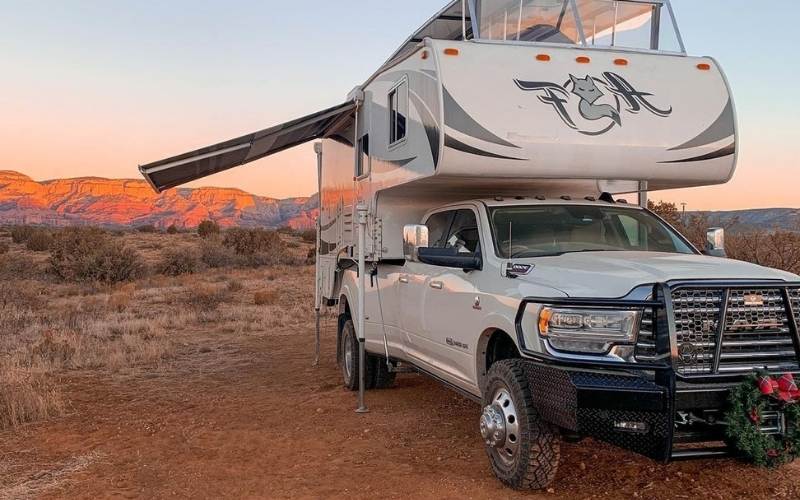When it comes to camping in an RV, there are a lot of different options to choose from.
Single-unit motorhomes are all inclusive and can be large enough for a whole family to travel in comfortably, while pull-behind trailers allow the convenience of detaching your commuter vehicle.
But what if you want something smaller that you can use for weekend getaways or shorter trips? That’s where the truck camper comes in.
Although the compact nature of truck campers may be appealing, there are many reasons not to get one.
These include their overall cost, the limited available space, and difficulty to use.
While truck campers are ideal for those who enjoy minimalistic camping, there are several alternative options to consider.
Truck campers have their place in the RVing world, but they are limited in space and amenities and are not ideal for all situations. In this article, we will discuss the top 10 reasons not to get a truck camper.
What is a Truck Camper?
A truck camper is a self-contained RV that sits atop the bed of a pickup. They are also known as cab-over campers, slide-in campers, and pick-up campers.
Truck campers come in both pop-up and hard-shell varieties.
Pop-Up truck campers are lightweight and can be easily set up and taken down. The roof pops up to provide more headroom inside, and the walls often fold out to create living and sleeping spaces. While truck campers conveniently fold down when not in use, this also takes away from the available storage space.
The other type of truck camper is the hard-shell camper. Hard-shell truck campers offer more living space and are typically larger than pop-ups, but they are also more expensive and can be difficult to maneuver.
Not being able to collapse makes them bulkier and less aerodynamic, and the additional storage space will likely make your overall Gross Vehicle Weight (GVW) more than what it would be using a pop-up camper.
Let’s take a closer look at the reasons you may not want to get a truck camper, as well as when a truck camper could be the right choice.
1. Truck Campers Are Expensive
One of the main reasons to avoid a truck camper is how expensive they can be.
The cost will vary depending on the size, features, and brand of the camper, but they are generally more expensive per square foot than other RVs.
New truck campers typically cost anywhere from $8,000 to $40,000, though some can go as high as $80,000.
The average price for used truck campers ranges from under $1,000 to $25,000 or more depending on condition, age, features, and brand.
If you do not already own such a vehicle, you will also have the additional expense of purchasing a large enough truck to carry a truck camper.
Truck campers are made to fit most pickups on the road today, but the more space and amenities you desire, the more it will weigh, and the higher your truck’s payload, or the cargo-carrying capacity, needs to be.
Models are made for short bed or long bed trucks, and the length of a truck camper can vary from as little as eight feet to as much as twenty-two feet.
To determine whether a truck can carry a truck camper, you’ll have to compare the weight of the camper with the payload of the truck.
The more a camper weighs, the higher the payload of the truck needs to be.
The average weight of a truck camper is around 2,500 lbs. Lightweight pop-up campers can weigh as little as 1,000 lbs., while truck campers with slides can be closer to 5,000 lbs.
To determine the full weight of the truck camper once it’s stocked and ready to travel, you will also have to account for the cargo you plan to carry in it. Common examples of cargo include the following:
If you are considering a truck camper, make sure your truck has a payload capacity that is high enough to accommodate the weight of the camper as well as all of its contents.
2. Truck Campers Can Get Bad Gas Mileage
When you combine the weight of a truck large enough to carry a truck camper, the truck camper itself, your possessions, and anyone traveling in the camper, you can end up with a significantly higher GVW than the original weight of the truck.
This is important to consider because the gas mileage that your final truck and camper setup experiences will depend not only on the make and condition of your truck, but largely also on how much you plan to carry along.
With so much added weight, the gas mileage gets noticeably reduced. While the gas mileage of other RVs is comparable, motorhomes allow you to tow a commuter car, and travel trailers can be separated from the tow vehicle.
However, you are generally obligated to take the complete truck camper setup with you wherever you go for the entirety of the trip.
While towing a vehicle with a truck camper setup is technically possible, you will have to ensure that the combined weight of the complete truck camper, the towed vehicle, and everyone traveling still falls within the truck’s payload.
And while you could also unload the truck camper at your campsite, this process can be tricky and comes with the risk of knocking the entire camper over.
3. Truck Campers are Not as Comfortable as Other RVs
A truck camper is not as comfortable as a traditional camper or motorhome due to its limited space and design.
The entire living space is confined to the size of the truck bed, with the exception of the bed that usually sits above the cab.
This means that there’s not a lot of legroom and that anything left out will quickly create clutter.
Especially if you’re traveling with multiple people or pets, you might find yourself feeling cramped before long.
There are also very few amenities in a truck camper. This means having to find alternative ways to clean yourself, limited ways to store and prepare food, and a more frequent need to restock supplies.
Because refrigerator and freezer space is also limited, you’ll have to be sure to plan out meals and think ahead before buying perishable items as well.
4. Truck Campers Have No Full Bathroom or Kitchen
Due to the small size of truck campers, they do not include a complete bathroom or a full kitchen.
Some may have a cassette or portable toilet, while others may even have a wet bath. There might also be a tiny sink in the kitchenette area.
However, you will not have access to a complete-sized refrigerator, oven, or stove.
Not having bathroom or kitchen facilities either means finding them elsewhere or learning to do without.
This can be both inconvenient and time-consuming, especially if you’re traveling on a tight schedule.
A truck camper may also not be the best option if you’re someone who likes to cook your own meals while traveling.
Truck campers are often equipped with a sink and small refrigerator, though storage and counter space are both limited.
While some smaller campers with a similar amount of available space offer outdoor kitchen options, truck campers sit elevated in the truck bed and don’t offer the same indoor/outdoor accommodation.
5. You Probably Won’t Find AC or a Hot Water Tank in Truck Campers
Most truck campers do not come with air conditioning. An air conditioning unit is a bulky addition that could be made, but it would increase the GVW further and will either require a window unit or precious floor space.
Since neither of these is ideal in the limited space of a truck camper, you’ll likely need to find another way to stay cool when traveling during the hotter months of the year.
Another common amenity not usually found in truck campers is a bulky and heavy hot water heater.
This means that, if you’d like to bathe while on the road, you’ll have to either take short and cold showers, or you can find a workaround such as showering at a gym.
6. Truck Campers Offer Very Little Storage Space
Truck campers are known for their compact design, not for their ample space.
Not only does the limited square footage of a truck camper reduce the living area, but it affects the storage space as well.
This can be especially frustrating if you are traveling long distances and need to bring along a lot of supplies, or if you have outdoor hobbies that require bulky gear.
Since best truck campers fit into the beds of trucks, the potential storage space of the truck bed is lost as well.
All of your possessions will need to fit inside the small confines of the camper itself, leaving little extra room for anything else.
7. Truck Campers are Elevated
Truck campers sit in elevated truck beds, so getting into one is more than the average step up.
While many truck campers will come with steps or a small ladder to assist, those who aren’t sturdy on their legs may find getting in and out of a truck camper difficult.
In addition, the small space of a truck camper means more climbing.
Since the bed of most truck campers sits above the cab, you’ll not only have to climb up into the camper, but you’ll have another couple of steps to get up into the bed as well.
8. Truck Campers Are Bulky and Can Be Difficult to Maneuver
The smaller size of truck campers also means that they are not as stable as larger RVs and can be difficult to maneuver, especially in tight spaces.
They have a higher center of gravity, which makes them more likely to tip over in windy or snowy conditions, as well as when traveling to a campground with narrow roads or winding paths.
You should also be aware of your camper’s weight. If you are not careful, you can overload your truck and cause some serious damage.
The truck doesn’t only have to be large enough to accommodate the truck camper, but the weight added to it has to be accounted for and should be evenly distributed throughout the camper.
Improper weight distribution can make your truck even more unstable and can damage the truck tires as well.
Another downside to truck campers is their height. If you plan to store it in a garage or to use it when traveling through cities with public parking houses, you’ll want to know the height of your camper first as the height restrictions of many garages will not be able to accommodate a truck and camper setup.
9. Truck Campers Are Difficult to Load and Unload
While it is possible to unload your truck camper at your campsite in order to explore your surroundings with only your truck, this is not as easy of a task as unhitching a trailer.
To unload a truck camper, you’ll have to first undo any straps attaching it to the truck.
Once it’s separated, you’ll have to lower the camper legs, then slide the truck bed out from under it.
To put it back on, you’ll have to reverse the truck bed under the camper, then complete the process in reverse.
And if you happen to knock the camper over in the process, it could not only cause damage to your items, but you may not be able to get it back up.
Loading and unloading a truck camper takes a bit of practice and may be especially difficult for anyone traveling alone.
While all things can be learned and perfected with practice, it is important to be aware of the added difficulty that a truck camper brings before making your purchase.
10. Breaking Down with a Truck Camper Can Be Challenging
It is not unusual or uncommon for breakdowns or other mechanical issues to occur while traveling.
However, when you are towing a camper or RV, these issues can become considerably more challenging, and this is especially true if you’re traveling with a truck camper.
If your truck with a truck camper breaks down while on the road, you will need to have a way to tow it to the nearest repair shop.
This may not only require renting or borrowing a tow truck, but you’ll likely also need a second vehicle to carry the camper separately.
While it’s possible to sleep in a travel trailer while your tow vehicle is being repaired, it is not so easy to do this with a truck camper.
And if you happen to find a way to transport both the truck and camper, it will likely cost significantly more than towing just one vehicle.
Alternative RV Options to Truck Campers
If you’ve decided that a truck camper is not right for you, then you may want to consider an alternative RV option instead.
Travel trailers get towed behind a tow vehicle and come in a wide range or shapes and sizes.
While some are collapsible and lightweight enough for even a sedan to tow, others are large fifth wheels with multiple slide outs and rooms.
Travel trailers are generally easy to hitch and unhitch, making them great for anyone who enjoys parking at a campsite and venturing out from there.
Class A, B, and C motorhomes are single-unit RVs. They also come in various sizes and can be ideal for single travelers as well as families and large groups.
Class A and C motorhomes are both built onto a chassis, while Class B RVs, commonly known as camper vans, are built into a solid van chassis.
The amenities found in motorhomes can range from those of a truck camper to what could be found in a small apartment.
Let;s take a look at the top three alternative RV options for anyone who was interested in a truck camper, as well as why each may be a better fit.
Travel Trailers
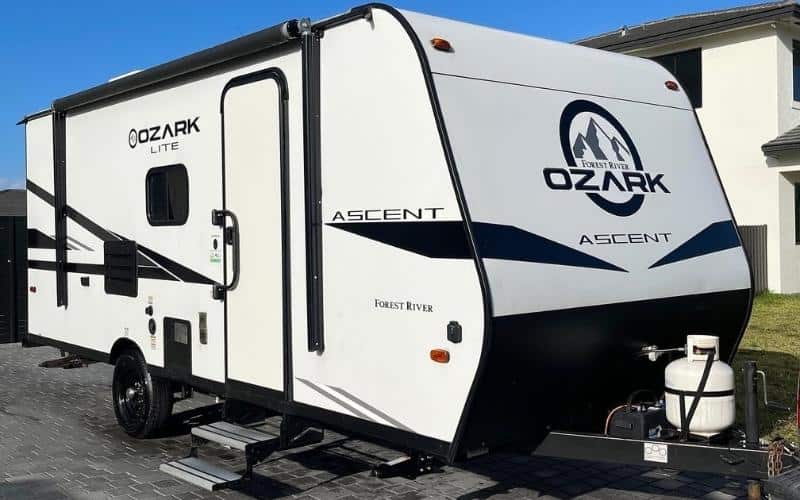
Travel trailers come in a variety of shapes and sizes to suit your needs and towing capabilities.
While they do make your overall vehicle length greater than what it would be with a truck camper, they also offer significantly more living and storage room.
Smaller trailers can also still feel compact and are tow easily. In fact, depending on the size of your tow vehicle, you can tow a trailer as large as 18-20 feet and still be able to pull into only two parking spaces.
One of the best things about travel trailers is that they are often equipped with all basic amenities such as a kitchen and bath.
They can also be hitched and unhitched relatively easily. Doing so allows you to explore wherever you travel with only your tow vehicle, saving you both the hassle of towing a rig and the money it takes to do so.
A-Frame Trailer
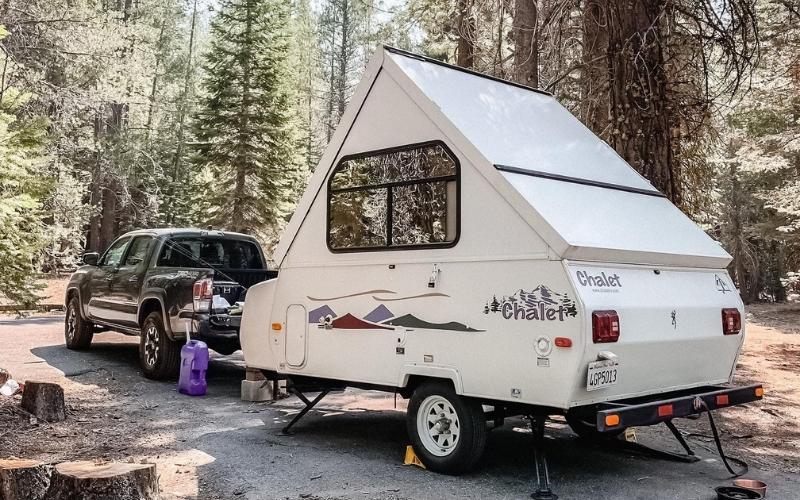
If you need a camper that can handle rough terrain or off-road travel, consider getting an A-frame camper instead of a truck camper.
A-frame campers are a type of travel trailer, but what makes them stand out is that they fold down flat.
A-frame trailers don’t offer much storage, but that means they are that much lighter and that you won’t have to worry about knocking much down as you travel across rougher terrain.
For this reason, A-frame campers are great for anyone who needs little and wants maximum versatility.
A-frame campers are also lighter than many other types of RV due to the nature of their design and can be towed by small SUVs and some sedans.
Always check your vehicle’s tow rating against the GWV of your trailer to make sure your vehicle is fit to tow it.
Class B RV
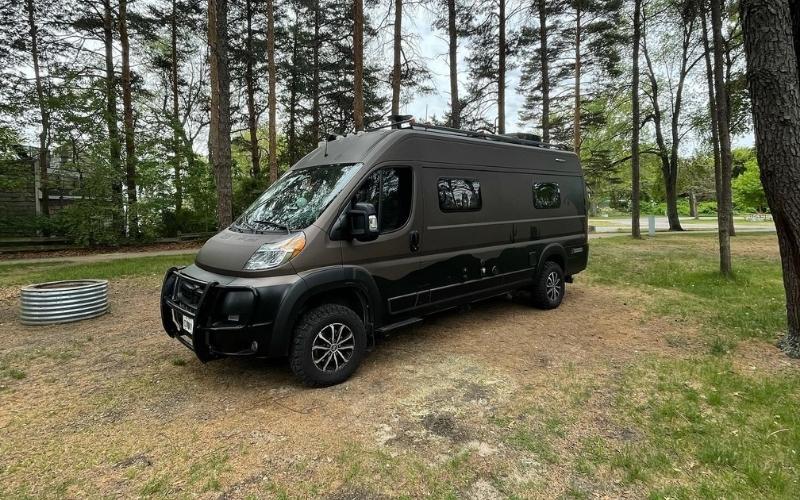
Class B RVs are another great alternative to truck campers. They offer a lot of the amenities of larger RVs, but they’re compact and easy to maneuver.
They are less heavy than truck campers, meaning they’ll get better gas mileage and won’t be difficult to drive in rain or high winds, and some even have similar off-roading capabilities as many trucks.
Class B RVs are ideal for anyone who wants to explore, but also wants the option to take all of their possessions with them.
They are a great middle-ground RV option and are growing in popularity, particularly with younger travelers.
When a Truck Camper is An Ideal Choice
While truck campers are certainly not ideal for everyone, they can be the right choice in certain situations such as boondocking or stealth camping.
A truck camper may be ideal if you frequently boondock in off-the-grid locations where there is no power or water hookups.
With just the basic amenities, truck campers are a perfect minimalist option for those who want to rough it in the great outdoors.
In addition, a truck will be more able to traverse rougher terrain than many motorhomes or travel trailers.
Stealth camping in cities may also be easier in a truck camper than in a motorhome or an RV because you’ll be able to fit into a smaller parking space.
However, remember that truck campers may be too tall for many park houses, and that even a truck that’s large enough to carry a camper may be limited on street parking.
A truck camper may also be a good choice if you already have a large enough truck to carry it.
While purchasing both the vehicle and the camper can make for a large down payment, purchasing only the camper makes it a much more affordable option.
Additional benefits of truck campers to consider include:
Although there are many reasons not to get a truck camper, the above reasons may be ideal for certain situations and should be considered before making your RV selection.
Why Not to Get a Truck Camper
The appeal of truck campers is their compact size, but there are many reasons not to get one.
Due to their small square footage, they offer little living and storage space, and only the most basic amenities are available.
They can also come with an expensive startup cost, and the gas mileage they receive may be surprisingly low.
Although a truck camper may be great for minimalists, those who want the full comforts of RV travel are better off finding an alternative RV option.

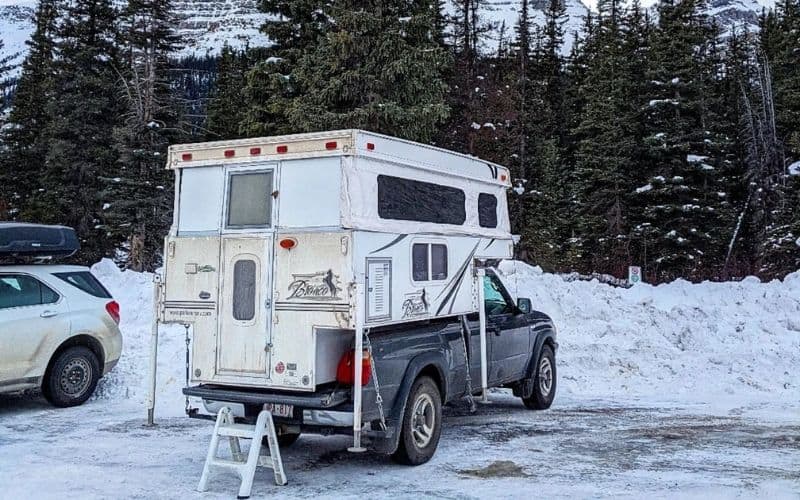
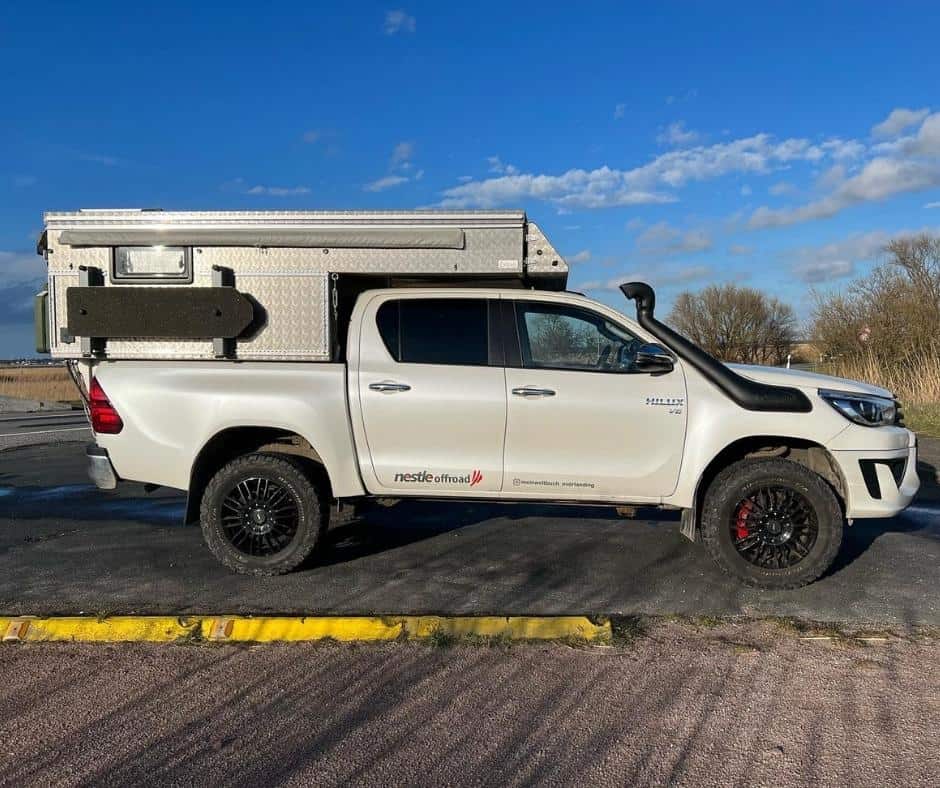
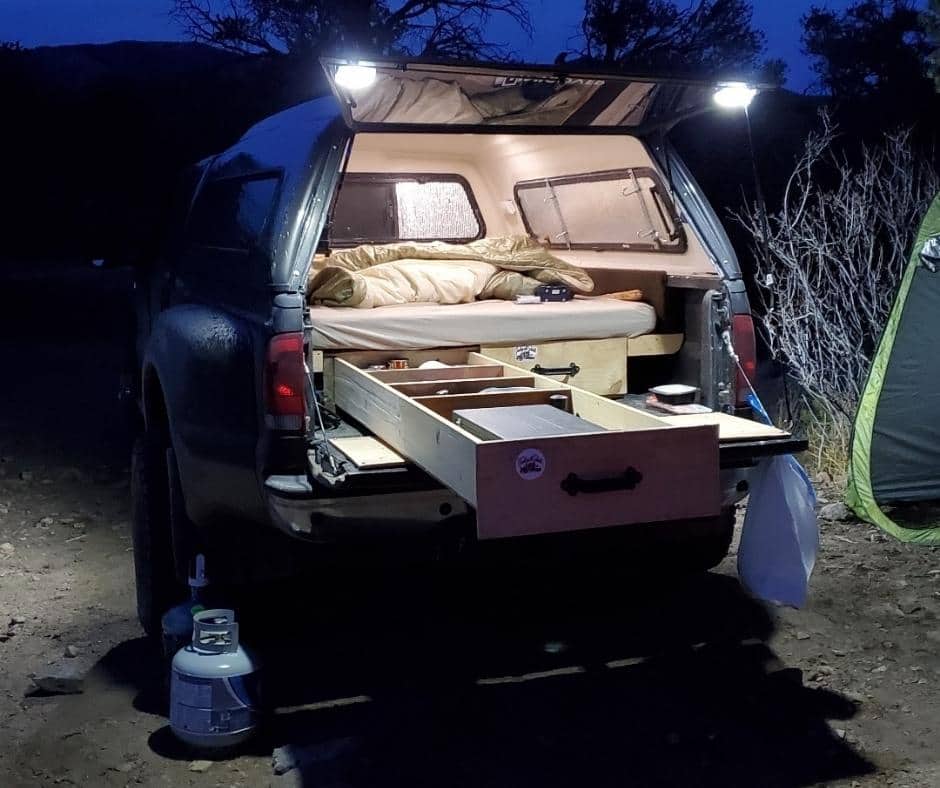
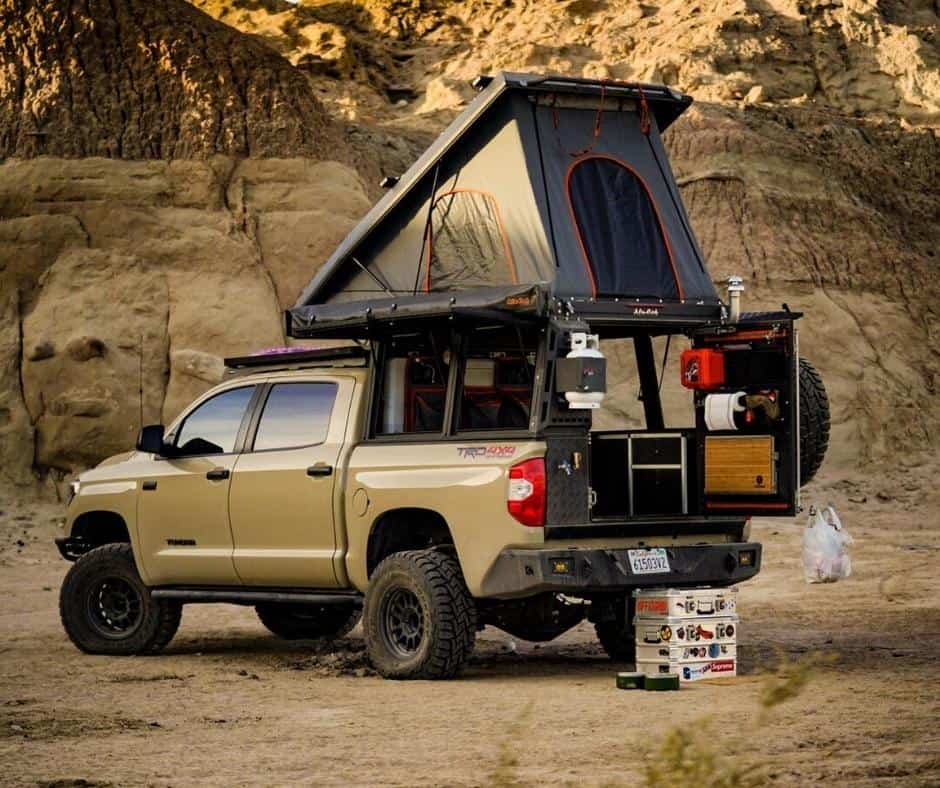
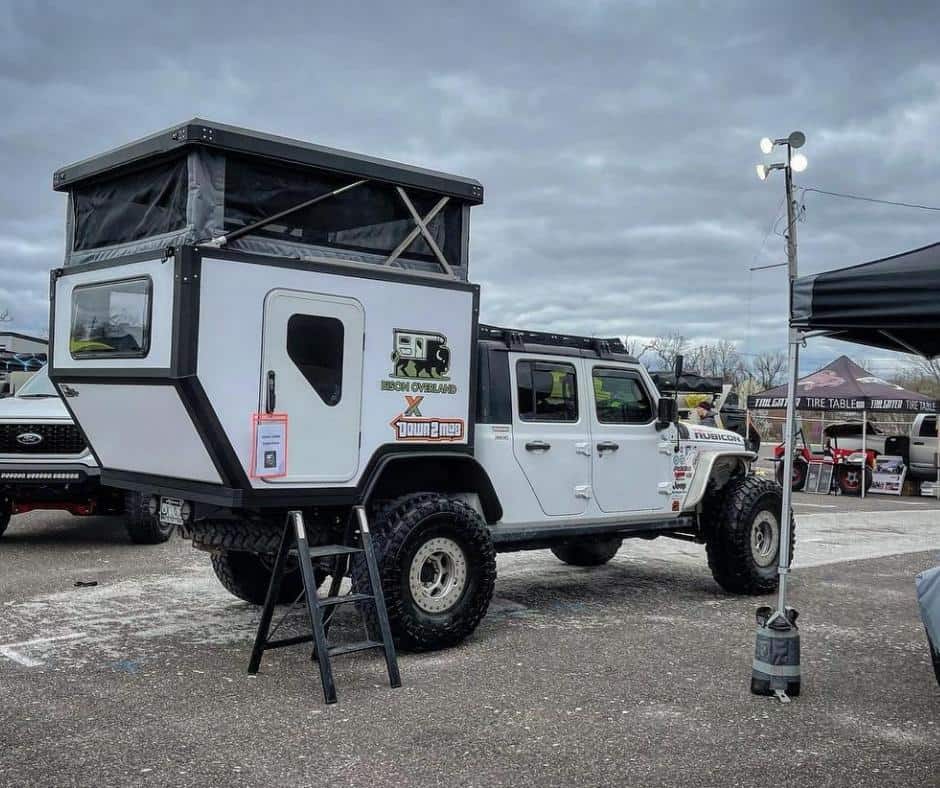
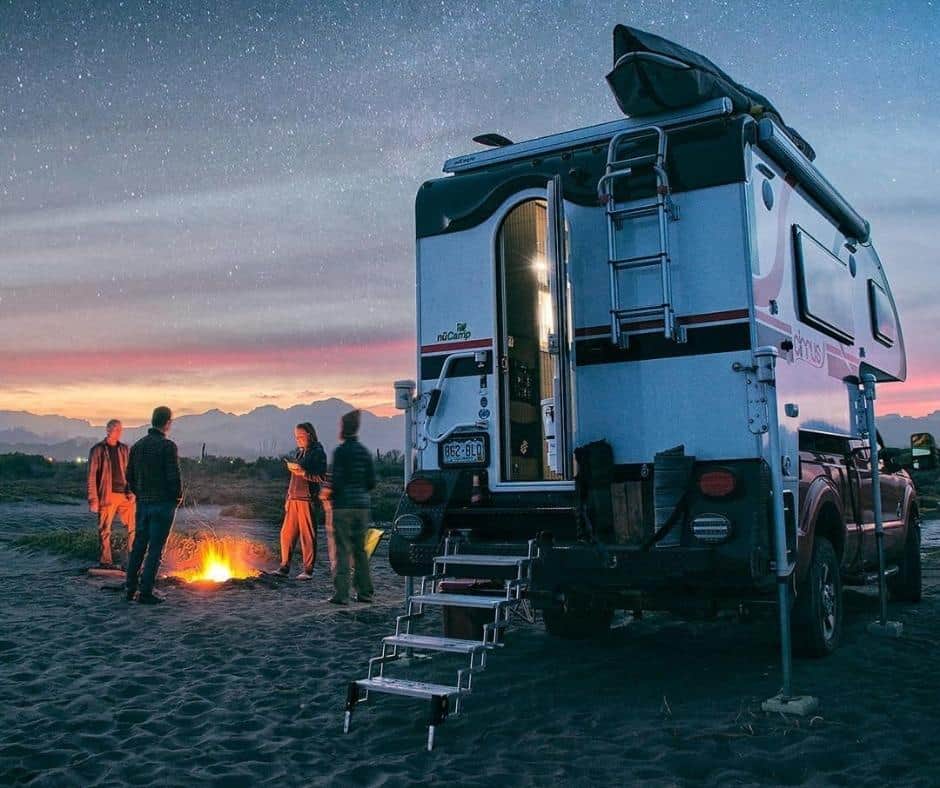


![Top 7 Lightweight Truck Campers For Half-Ton Pickup In [currentyear] 12 Top 7 Lightweight Truck Campers For A Half Ton Pickup Trucks](https://www.rvingknowhow.com/wp-content/uploads/2020/09/Top-7-Lightweight-Truck-Campers-For-A-Half-Ton-Pickup-Trucks.jpg)
![The 8 Best Truck Campers with Slide Outs in [currentyear] 13 Best 2021 Truck Campers With Slide Outs](https://www.rvingknowhow.com/wp-content/uploads/2020/11/Best-2021-Truck-Campers-With-Slide-Outs.jpg)
